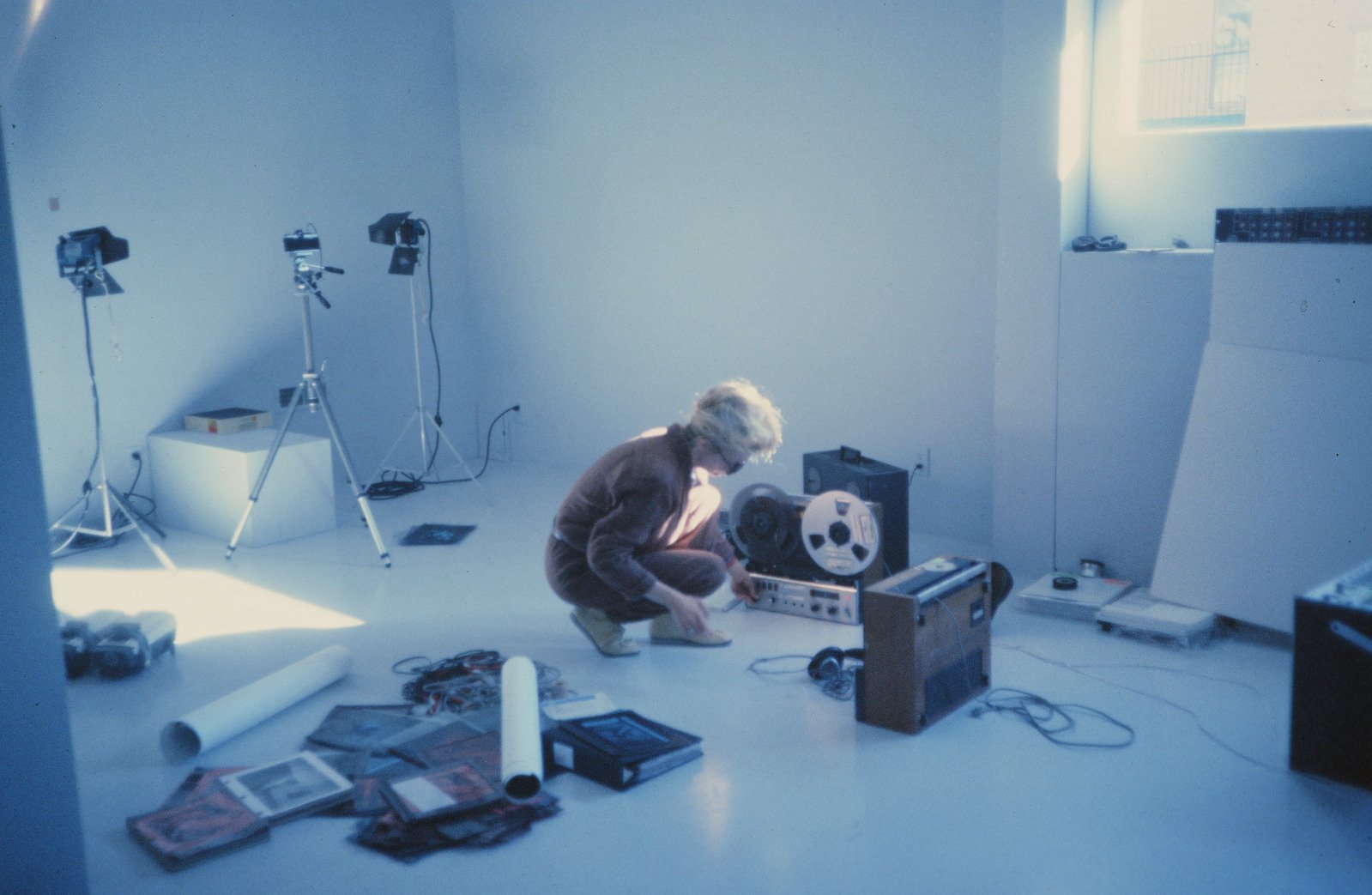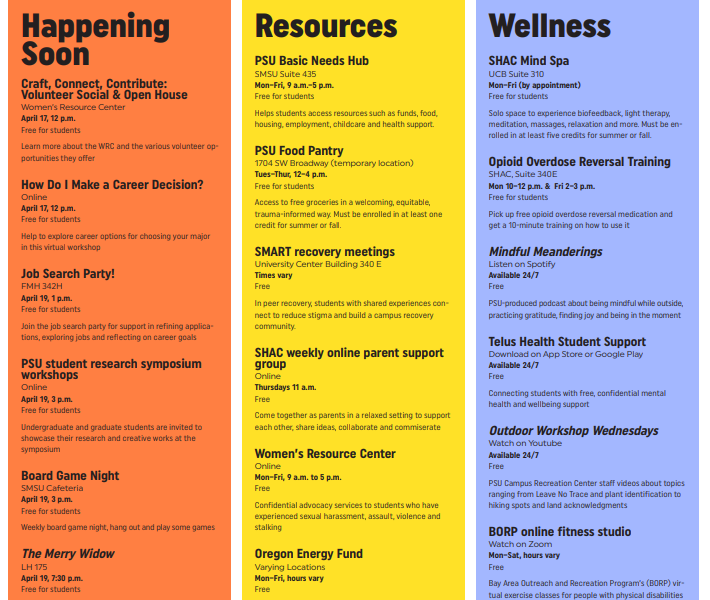This week at 5th Avenue Cinema—Oregon’s only student-run theater—film curators will be screening Sisters with Transistors. This 2020 documentary, directed by Lisa Rovner, shares the forgotten story of electronic music’s female pioneers.
Women such as Daphne Oram and Suzanne Ciani are featured, highlighting their use of early synthesizers and tape manipulation to push the boundaries of music. The film is rich with archival footage and testimonies and reveals the evolution of music over the past century.
Narrated by Laurie Anderson, the documentary focuses on the creativity of women who were composers, artists and inventors—crafting their own electronic instruments. Their brilliant innovation and developments in electronic sound paved the way for the genre of electronic music as we know it today.
Each term, the staff of 5th Avenue Cinema put together movies that students can watch on the big screen—for free—every week. Sisters with Transistors was selected by the Cinema’s publicity coordinator, Naomi Nguyen.
In celebration of Women’s History Month, 5th Avenue Cinema has presented various films focusing on women. Nguyen said that the decision on a theme, such as women-focused films, comes up naturally when developing a program. “We either talk about films we’ve been enjoying lately or some of our old favorites and, at some point, a theme just starts to emerge,” she said. “Once that theme solidifies, we fill in the rest of the picks to adhere to that theme.”
Sisters with Transistors has been on Nguyen’s radar for years, and she believes it easily fits into the programming this term. “I also like balancing [our films],” she said. “We show a lot of narrative films, and I think documentaries are a nice medium for more factual information and history.”
Nguyen appreciates the documentary because many of the featured artists are ones that she has been listening to for years. “One of them is actually a personal idol of mine,” she said. “So once I learned it’s narrated by Laurie Anderson and [that] Laurie Spiegel and Clara Rockmore are in the documentary, I was just inherently intrigued and interested.”
Nguyen points to Laurie Spiegel as an artist whom she particularly admires. “She composed this record called The Expanding Universe, which I have on vinyl,” Ngyuen said. “It’s a very meditative record—one of those ones you can just put on and lay down in the middle of the floor and stare at the ceiling. It’s really quite a sonic journey.”
The documentary showcases Spiegel’s process of creating her music software program. “She actually intended it to be available on the internet for people, which at the time was very new and very nascent,” she said. “I really admire her for not only creating her own instruments but making it accessible to the general public.”
The fact that the women in this film not only made revolutionary music but also the instruments themselves sets them apart as creative pioneers. “A lot of the interviews took place in their studios as well,” Nguyen said. “When you see them, they actually look more like a scientific laboratory because of how everything was set up and just how meticulous they were about what they were creating.” Nguyen admired their curiosity and passion, highlighting that many are still creating today.
Nguyen pointed out a scene featuring the avant-garde musician and artist Laurie Anderson, and made sure to point out the rarity of the grainy footage. “She has her back turned to the camera, twiddling the knobs on this giant computer that takes up half of the room,” Nguyen said. “When I saw that, I was struck by the magnitude of these machines that they were using and pioneering. [They were] creating just out of this very genuine sense of curiosity and creativity.”
“There’s truly so much craft involved in it all,” Nguyen said. “Over time, a lot of these artists were forgotten about. I think that’s why I love this documentary so much. It really hones in on the small details of their experience.”
Nguyen called attention to a scene in the film featuring Clara Rockmore, a Lithuanian violinist and “theremin virtuoso.” A theremin is an instrument that is played without being touched. The musician waves their hands near two antennas, creating sound by generating movement to interfere with the electromagnetic field. One hand controls the pitch, and the other controls the volume.
“You could see how skilled she was and how precise her hand movement was,” Nguyen said. “I think in one scene her eyes were closed! It’s proprioception, where you kind of just know where your body is in space. That was really incredible to see.”
Nguyen has been the Publicity Coordinator for 5th Avenue Cinema for the past year. She publicizes 5th Avenue Cinema’s events, advertises upcoming screenings and coordinates with student groups around Portland State.
“We collaborate with student organizations whose motives and values align with ours,” Nguyen said. “It just starts with a discussion on intent and direction, hearing ideas that everyone has and going from there.” In recent months, 5th Avenue Cinema has been collaborating with groups such as PSU Students United for Palestinian Equal Rights, Las Mujeres and Disarm PSU, among others. They also put together the Palestinian Film Festival this term.
The staff at 5th Avenue Cinema seeks to expand opportunities for broader student collaboration and facilitate student proposals for community projects. “We launched our new collab form on PSU Connect to make the process a little more streamlined,” Nguyen said.
5th Avenue Cinema is excited to present Sisters with Transistors to the students of PSU. Nguyen believes that the majority of the PSU populace will enjoy this film, as it appreciates the creativity of music production. “It really puts into perspective how music has evolved in general over the past century,” she said.
Students can catch a Sisters with Transistors screening on campus this weekend at 5th Avenue Cinema. Showings are Friday and Saturday at 6 p.m. and 8:30 p.m., with a Sunday matinee at 3 p.m.






